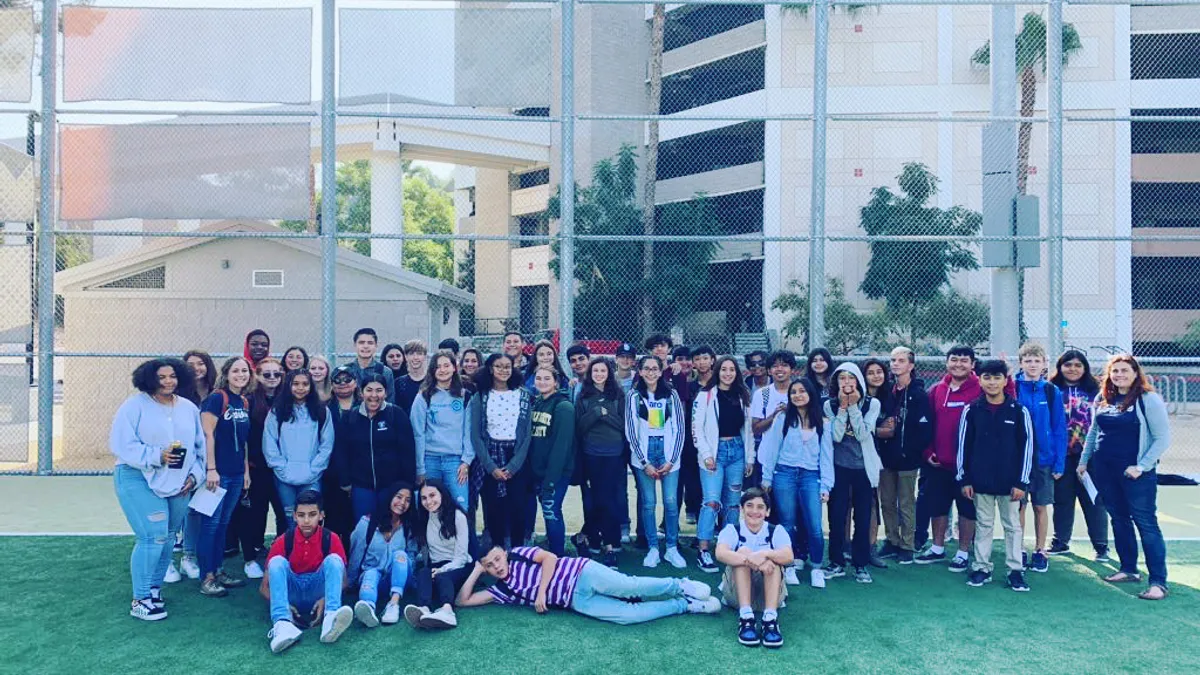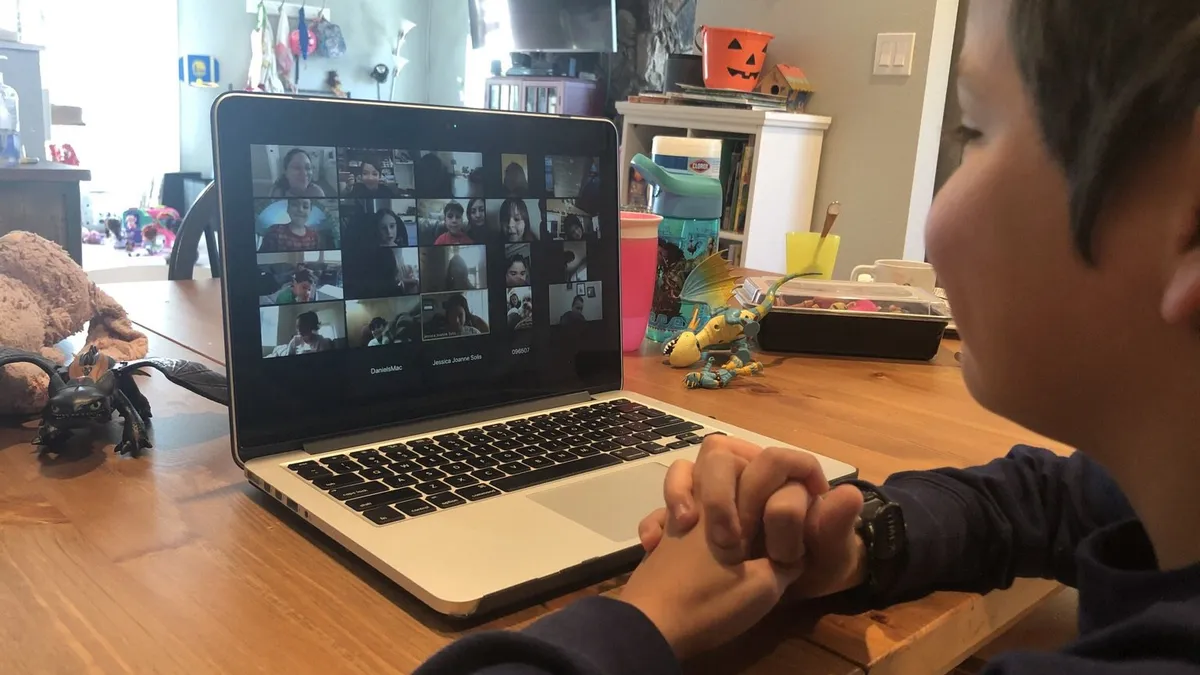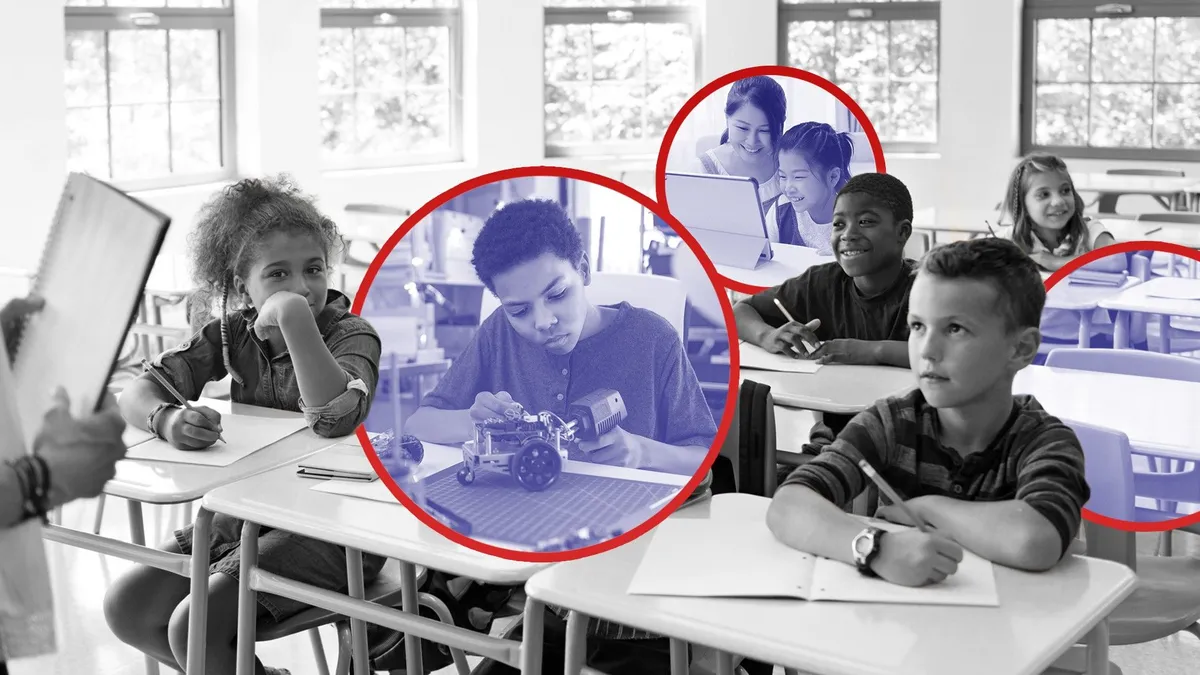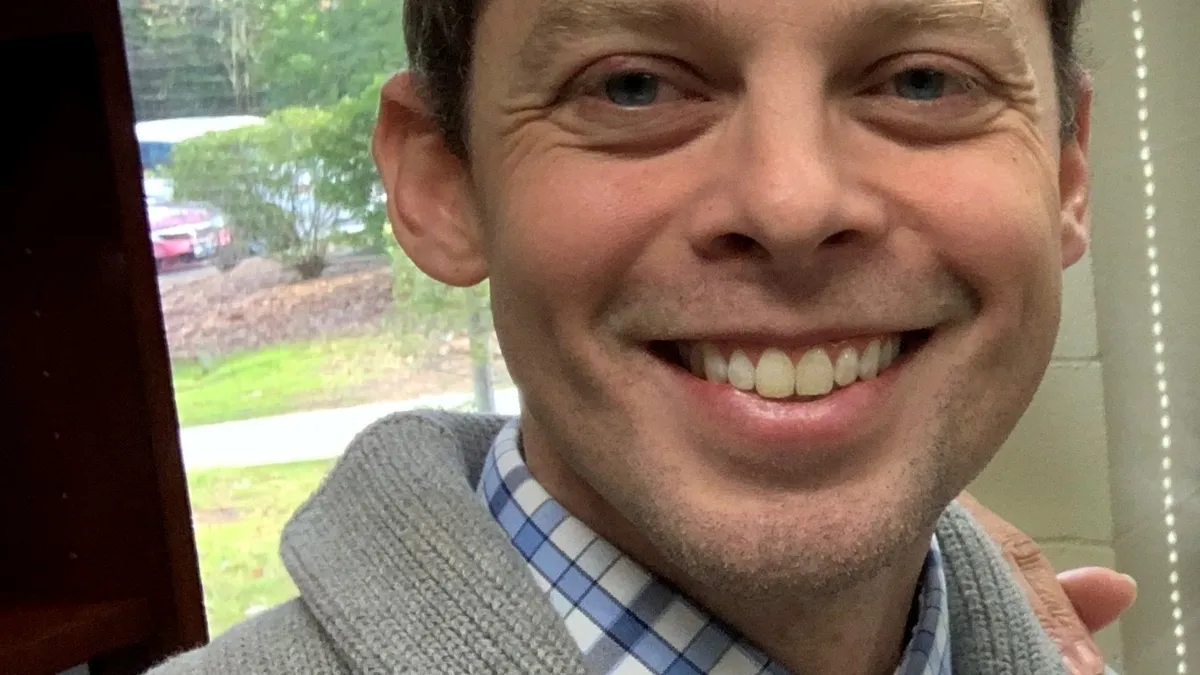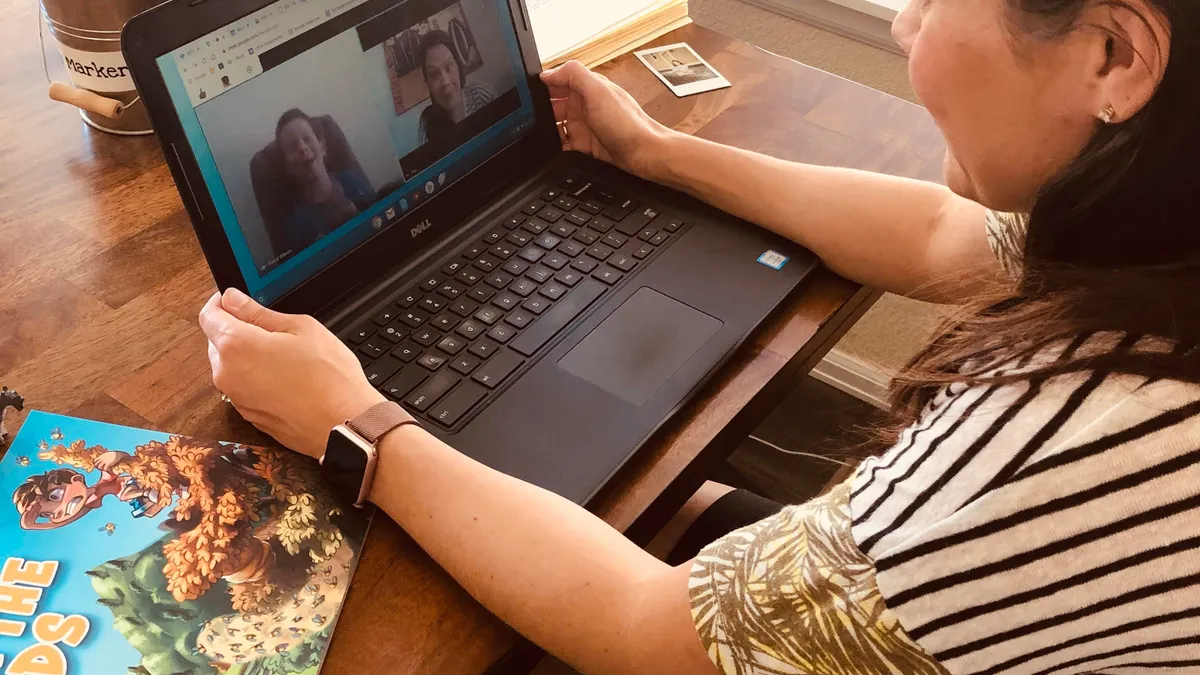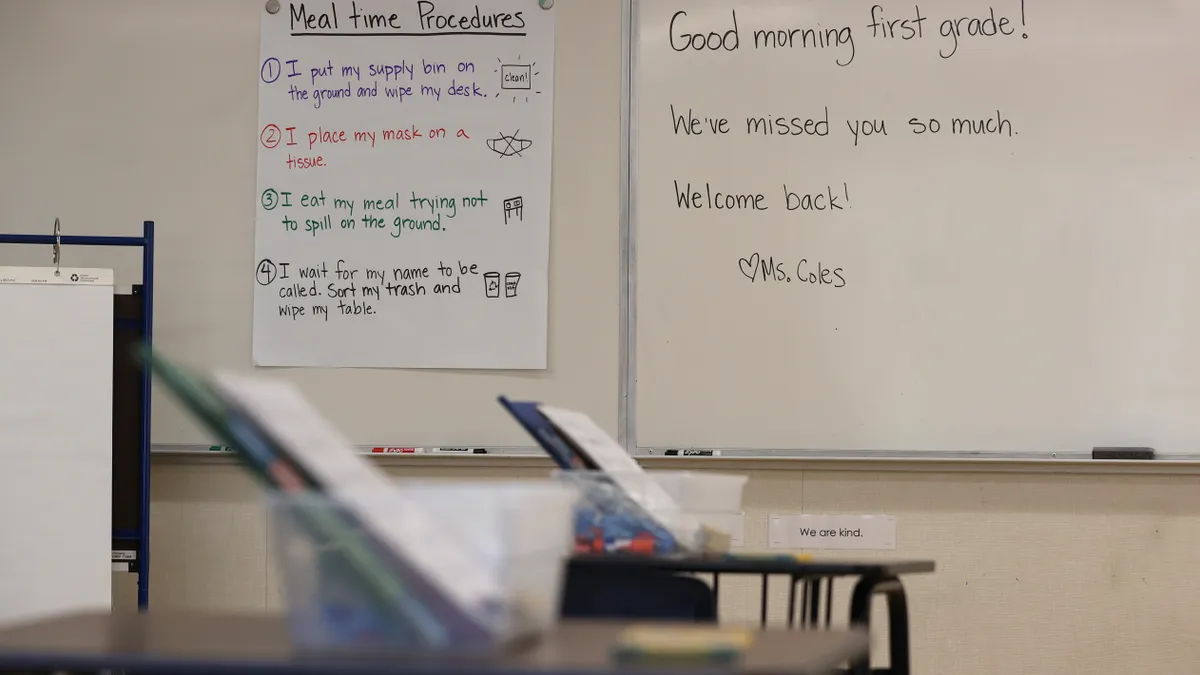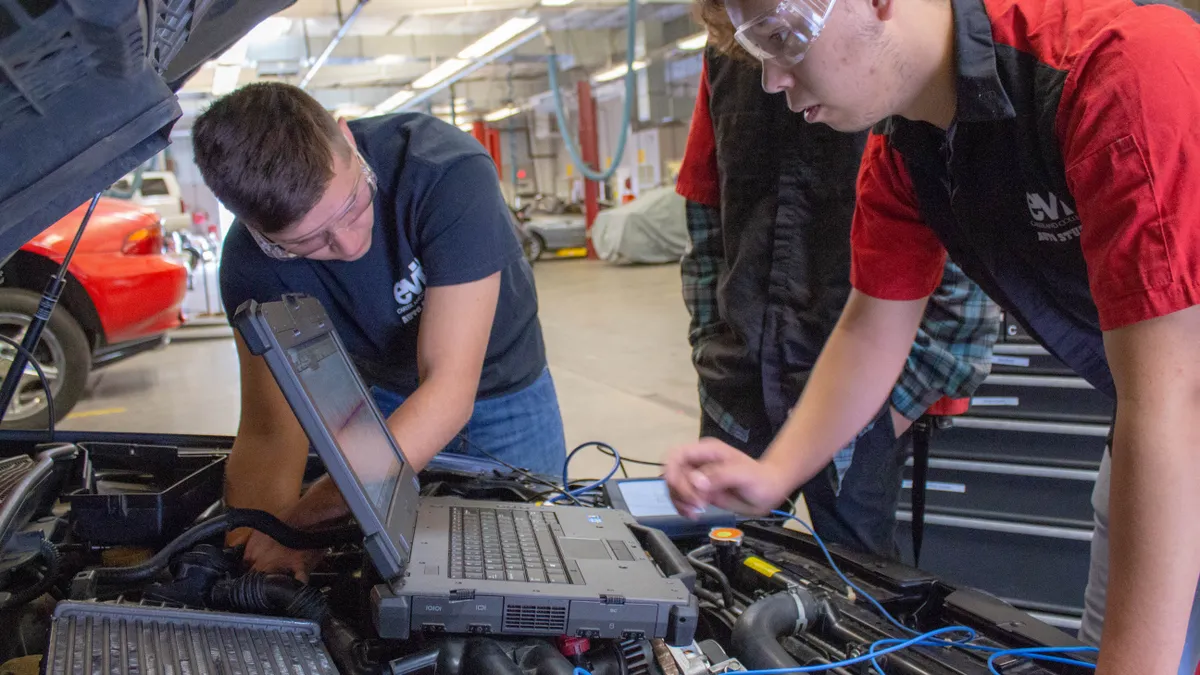Curriculum: Page 50
-

 Eden, Janine and Jim. (2020). "Black Lives Matter March" [Photograph]. Retrieved from Flickr.
Eden, Janine and Jim. (2020). "Black Lives Matter March" [Photograph]. Retrieved from Flickr.
How will administrators incorporate lessons learned from summer protests?
Principals and superintendents are reconsidering the messages students are hearing from their schools, and the lens through which they learn.
By Natalie Gross • June 30, 2020 -
Improving LGBTQ representation in curriculum reduces stigma, bullying
Nearly 75% of LGBTQ students surveyed say they’ve experienced bias-based bullying, but inclusivity in books and discussions can help them feel reflected in class, experts say.
By Lauren Barack • June 24, 2020 -
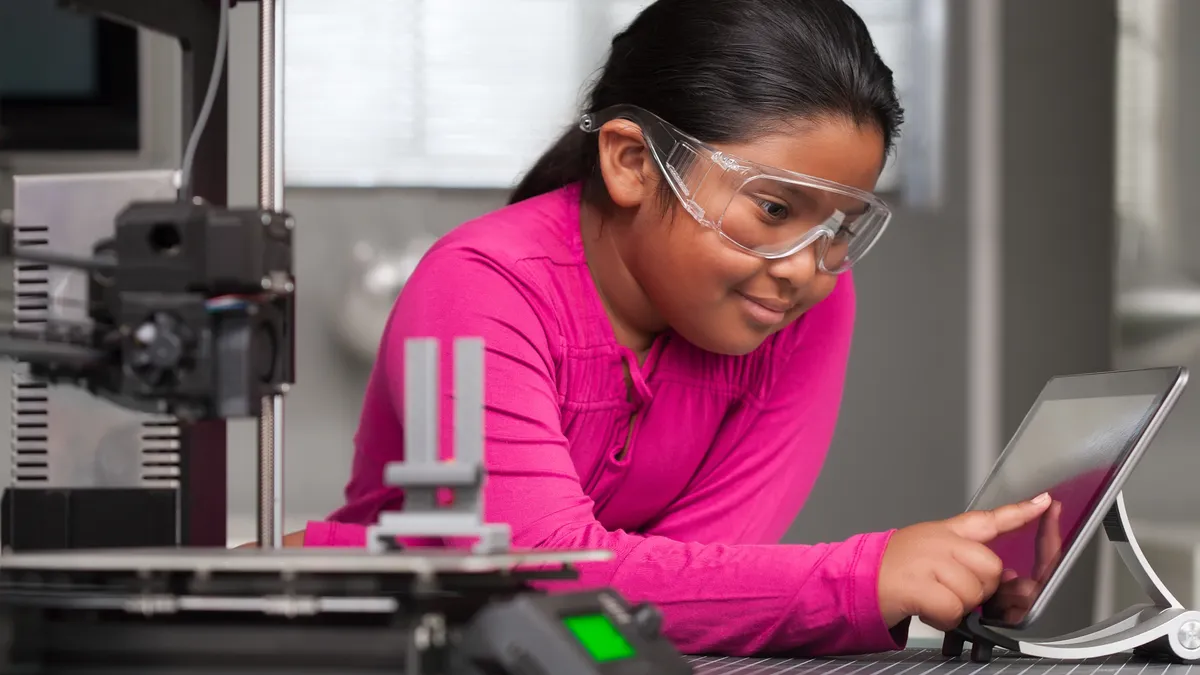 Explore the Trendline➔
Explore the Trendline➔
 Permission granted by Benetech
Permission granted by Benetech Trendline
TrendlineSTEM
From AI to quantum physics, STEM learning opportunities in K-12 are expanding to keep pace with related fields.
By K-12 Dive staff -
There's more to geography than just 50 states and their capitals
Educators and social studies experts are committing to keep geography from vanishing from curriculum.
By Kathryn Baron • June 24, 2020 -
Educators prepare to apply lessons learned in spring, summer to next school year
With expectations for the new school year ranging from in-person or live e-learning sessions to hybrid models, educators are weighing best practices identified thus far.
By Shawna De La Rosa • June 24, 2020 -

 Retrieved from Piqsels.
Retrieved from Piqsels. Opinion
OpinionIt's going to take more than one semester to fix the 'COVID slide'
A principal and an ed tech researcher outline steps for assessing students' learning loss and making curriculum adjustments this fall.
By Claudio Estrada and Mariana Aguilar • June 18, 2020 -
3 coronavirus challenges for curriculum directors this fall
Administrators are facing tighter budgets along with a need to establish expectations and adopt resources that fit multiple paths.
By Lauren Barack • June 17, 2020 -
'Adulting' courses teach students life skills, from paying taxes to managing stress
Courses preparing young people to be self-sufficient are gaining steam even at the postsecondary level as administrators see a growing need among students.
By Lauren Barack • June 17, 2020 -
Lack of Juneteenth lessons highlights shallow depth of Black history curriculum
Renewed attention to the Black Lives Matter movement is adding focus for additional context and deeper content in Black history curriculum.
By Shawna De La Rosa • June 17, 2020 -
Column
Fast Forward: Hybrid models could prove effective. Are they here to stay?
As educators prepare to potentially teach both in person and online in fall, blended learning could be a change that lasts beyond the coronavirus outbreak.
By Naaz Modan • June 17, 2020 -
Report calls for increased civics focus with hands-on learning
The American Academy of Arts and Sciences includes civic projects and service learning among its recommendations for hands-on civics ed.
By Shawna De La Rosa • June 12, 2020 -
Online camps, added choice key to slowing summer slide amid coronavirus
Giving students more options can help boost their engagement and motivation to learn, learning experts say.
By Lauren Barack • June 10, 2020 -
Q&A
Curricular Counsel: How a South Carolina district weathered the pandemic, prepped for next year
A well-planned device program enabled Greenville County Schools to transition to e-learning relatively smoothly, but its approach is still being tweaked.
By Roger Riddell • June 10, 2020 -
Racially homogenous classes partner to develop empathy
A black Memphis teacher who set up the partnership wrote that the unknown contributes to racism and bias, noting educators must work harder to close racial divides.
By Shawna De La Rosa • June 10, 2020 -
Remote assessment alternatives can go beyond measuring progress
Pandemic shutdowns require a rethinking of testing, weighing opportunities to hone skills while tracking knowledge, writes an education expert.
By Lauren Barack • June 3, 2020 -
Teacher survey: Meeting students' needs, lack of PD among distance ed challenges
Educators are also concerned about academic decline and social-emotional issues when schools do reopen, as well as unrealistic expectations of students getting back on track quickly, the report says.
By Shawna De La Rosa • June 3, 2020 -

 "BlackLivesMatter GeorgeFloyd Protest Oakland, California" by Daniel Arauz is licensed under CC BY 2.0
"BlackLivesMatter GeorgeFloyd Protest Oakland, California" by Daniel Arauz is licensed under CC BY 2.0
Amid protests, educators prepare for difficult discussions
Experts say additional training and culturally relevant curriculum are key components to guiding students through topics such as police brutality and systemic racism.
By Roger Riddell • June 3, 2020 -
News literacy critical as students face national 'infodemic'
Twitter flagging the president’s tweets is another example of how students are "inheriting an information ecosystem that has unfolded in ways we never imagined," experts say.
By Linda Jacobson • June 3, 2020 -
Daily Roundup: Other news from around K-12
The number of students with disabilities grew by about 700,000 over the past decade. Educonomics Lab tool helps districts calculate learning loss needs.
By Roger Riddell • Updated June 28, 2022 -
Breaking down complex material can make high school curriculum digestible
A 12th-grade English teacher suggests going back to the basics and simplifying tasks can help students tackle big ideas and ensure they get support.
By Lauren Barack • May 27, 2020 -
Pandemic flips CTE models, but not without challenges
Navigating career learning programs, which require hands-on experiences, has been particularly difficult as districts reconsider remote learning curricula.
By Shawna De La Rosa • May 27, 2020 -
Reports: Early inclusion strategies shape students' perception of math
Contextualizing math in students' lives can help them make connections that support ongoing success.
By Shawna De La Rosa • May 27, 2020 -
New toolkits aim to increase STEM diversity
The initiative from nonprofit The Plenary, Co. includes career resources and other classroom materials, featuring scientists across a variety of career stages.
By Lauren Barack • May 20, 2020 -
Educators play key role helping students process grief
Recognition of the importance of social-emotional learning was on the rise pre-pandemic, and focus is growing as students experience change and loss.
By Shawna De La Rosa • May 20, 2020 -
3 tips for navigating arts education during school shutdowns
Providing supplies and effectively evaluating creative assignments have proven challenging for arts educators during the pandemic, but they say there are creative worrkarounds.
By Roger Riddell • May 14, 2020 -
Informal outlets will power remote summer learning opportunities
Videoconferencing and social media remain critical tools to stem learning loss as the pandemic disrupts education opportunities over the break.
By Lauren Barack • May 13, 2020
